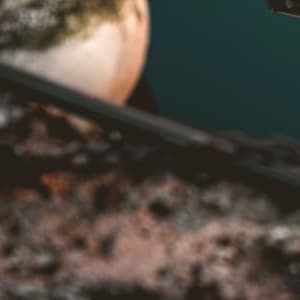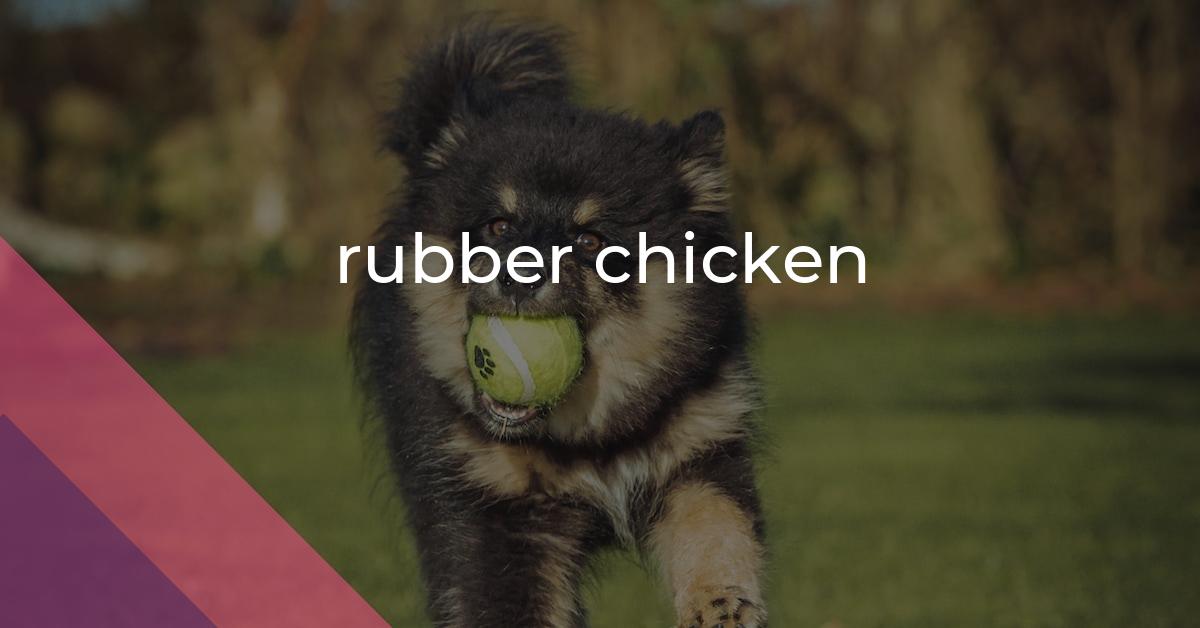rubber chicken: Idiom Meaning and Origin
What does ‘rubber chicken’ mean?
The idiom "rubber chicken" refers to a comedic prop used in performances, often associated with jokes that are old or clichéd. It symbolizes something that is overused or lacking originality and effectiveness.

Idiom Explorer
The idiom "rub in" means to emphasize or remind someone of something, often in a way that causes annoyance or embarrassment.
A "rubber room" refers to a place where teachers or employees are assigned to when they're removed from their regular work due to misconduct or incompetence. It is a metaphorical term that suggests being stuck in a situation with no progression or escape.
The idiom "rubber johnny" refers to a slang term for a condom. The term is typically used informally and may vary in different regions or contexts.
The idiom "rocking-horse shit" is a colorful way of describing something that is extremely rare or hard to find. It emphasizes the idea of something being as scarce as horse manure from a rocking horse, which doesn't exist in reality. The phrase is considered vulgar and used for comedic effect.
"Rickle o' banes" is an idiom that means a collection of bones.
The idiom "rarer than hens' teeth" means something is extremely uncommon or scarce. This comparison refers to the fact that chickens do not have teeth, making them virtually non-existent.
The idiom "pope's nose" refers to the fatty tail part of a cooked chicken or turkey, resembling a nose. It is often considered a delicacy and is used as a humorous or slang term.
The idiom "play chicken" refers to a dangerous game or situation in which two or more people or vehicles, driven by a desire to prove their bravery or dominance, deliberately approach each other in a head-on collision course, waiting until the last moment to back down or swerve. The purpose is to see who will "chicken out" first and avoid the collision.
The idiom "old stick" is a colloquialism used to affectionately refer to an old or familiar person. It conveys a sense of familiarity, companionship, and sometimes even nostalgia.
The Comical Tradition
Rubber chicken is an idiom that originated in the mid-20th century in the United States. This comedic phrase has gained popularity in American English and is often used in various forms of entertainment, such as comedy skits or magic acts.
The meaning of the idiom "rubber chicken" is to describe something as fake, insincere, or lacking genuine value. It is used to mock or criticize situations, objects, or individuals that appear important but are actually considered trivial or unserious.
The use of rubber chickens as props in comedy performances has contributed to the origin of this idiom. These oversized and comical props made of rubber or latex are known for their exaggerated features, such as long necks and oversized wings. The presence of a rubber chicken in a performance is meant to evoke laughter and amusement from the audience.
This lighthearted idiom is commonly used in informal settings, like casual conversations, comedic sketches, and satirical writings. It serves as a playful way to express skepticism or mock the lack of sincerity or seriousness in a particular situation.
For instance, someone might say, "The meeting was a complete rubber chicken affair with no real substance," to convey that the meeting lacked meaningful or productive content.
The idiom "rubber chicken" has a distinct meaning in American English and is firmly rooted in the realm of comedy and entertainment. Its usage adds humor and playful criticism to discussions, highlighting the contrast between genuine value and superficial appearances.
Now, let's explore how the idiom "rubber chicken" relates to two other idioms: "old chestnut" and "chicken feed".
The idiom "old chestnut" refers to a joke, story, or saying that has been repeated so often that it has become stale or unoriginal. It is often used when someone tells a well-known joke or a story that has been shared numerous times before.
In the context of "rubber chicken," the idiom "old chestnut" could be used to describe a comedic skit or routine that relies on predictable and overused jokes. For example, if a comedian continues to use the same tired punchlines or comedic bits involving a rubber chicken, it could be called an "old chestnut."
On the other hand, the idiom "chicken feed" refers to a small or insignificant amount of money or resources. It is often used to imply that something is of little value or importance.
When connected to the idiom "rubber chicken," "chicken feed" could be used to express that a comedic performance involving a rubber chicken is considered inconsequential or lacking in impact. It suggests that the entertainment provided by the rubber chicken is seen as trivial or unimpressive.
Incorporating these related idioms naturally into the text allows for a more comprehensive understanding of the various ways in which "rubber chicken" can be used and related to other idiomatic expressions. It showcases the versatility and playfulness of language, particularly in the realm of comedy and entertainment. The use of idioms like "old chestnut" and "chicken feed" adds depth and nuance to the discussion of the idiom "rubber chicken."
Overall, the idiom "rubber chicken" remains a colorful and engaging phrase in American English, serving as a way to inject humor and playful criticism into conversations. With its origins in comedy and performance, this idiom continues to be a popular and well-understood expression in contemporary American society.
Example usage
Examples of how the idiom "rubber chicken" can be used in a sentence:
- He won a rubber chicken as a joke prize at the carnival.
- During the team building exercise, they played a game of catch with a rubber chicken.
- The comedian pulled out a rubber chicken from his prop bag for a silly gag.
More "Humor" idioms



